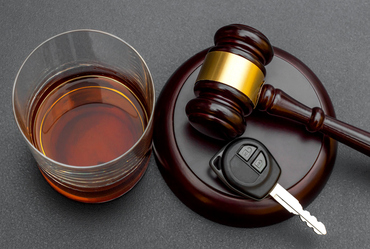Search

Driving under the influence (DUI) or driving while intoxicated (DWI) are serious offenses that carry significant legal repercussions and personal consequences. Understanding the impact of such charges is crucial, not only for those who may face a DUI/DWI but for society as a whole, which grapples with the widespread effects of impaired driving.
When an individual is charged with a DUI or DWI, they are accused of operating a vehicle while their ability to do so is impaired by alcohol or other drugs. The legal repercussions for being convicted of these offenses can be severe and vary depending on the jurisdiction. Common penalties include hefty fines, license suspension or revocation, mandatory alcohol education programs, community service, probation, and even imprisonment. In many cases, offenders are required to install an ignition interlock device in their vehicles, which prevents the car from starting unless the driver passes a breathalyzer test.
The severity of these penalties is often influenced by factors such as the driver’s blood alcohol content (BAC) at the time of arrest, previous offenses, and whether the impaired driving resulted in an accident, injury, or death. These strict legal consequences underscore the societal commitment to deterring impaired driving and protecting public safety.
Beyond legal penalties, a DUI/DWI conviction can have profound personal and financial repercussions. The immediate financial costs include legal fees, court fines, increased insurance premiums, and potential job loss due to criminal records or mandatory court appearances. Over time, the financial strain can extend to difficulties in securing employment, as a DUI/DWI mark on a background check may dissuade potential employers.
Moreover, the stigma associated with a DUI/DWI conviction can affect personal relationships and one’s standing within the community. For many, this social stigma is one of the most challenging aspects of living with a DUI/DWI conviction, leading to feelings of embarrassment and isolation.
The psychological impact of a DUI/DWI charge should not be underestimated. Many individuals experience high levels of stress, anxiety, and depression following their arrest and throughout the legal process. The prospect of legal proceedings, alongside guilt and regret for past actions, can be overwhelming. It is crucial for those affected to seek support from mental health professionals, who can provide coping strategies and help individuals navigate the emotional turmoil accompanying a DUI/DWI charge.
One of the most effective strategies in mitigating DUI/DWI incidents is prevention through education. Awareness programs highlight the dangers and consequences of impaired driving, emphasizing that it’s never worth the risk. Schools, communities, and organizations often collaborate to spread this critical message, aiming to reduce the number of impaired driving incidents through informed decision-making.
Technology also plays a role in prevention. Ride-sharing apps, for example, provide convenient alternatives to driving under the influence. Additionally, continued advancements in vehicle safety technology, such as automatic braking systems and advanced driver assistance systems, contribute to reducing accidents caused by impaired driving.
Understanding the multifaceted impacts of DUI/DWI is essential for comprehending the seriousness of these offenses. The legal, personal, financial, and emotional repercussions serve as a stark reminder of the importance of making responsible choices. Through education and awareness, individuals can be better equipped to avoid the pitfalls of impaired driving, ultimately fostering safer roads and communities for everyone. While the journey through a DUI/DWI charge may be daunting, it also presents an opportunity for individuals to make positive, lasting changes in their lives.